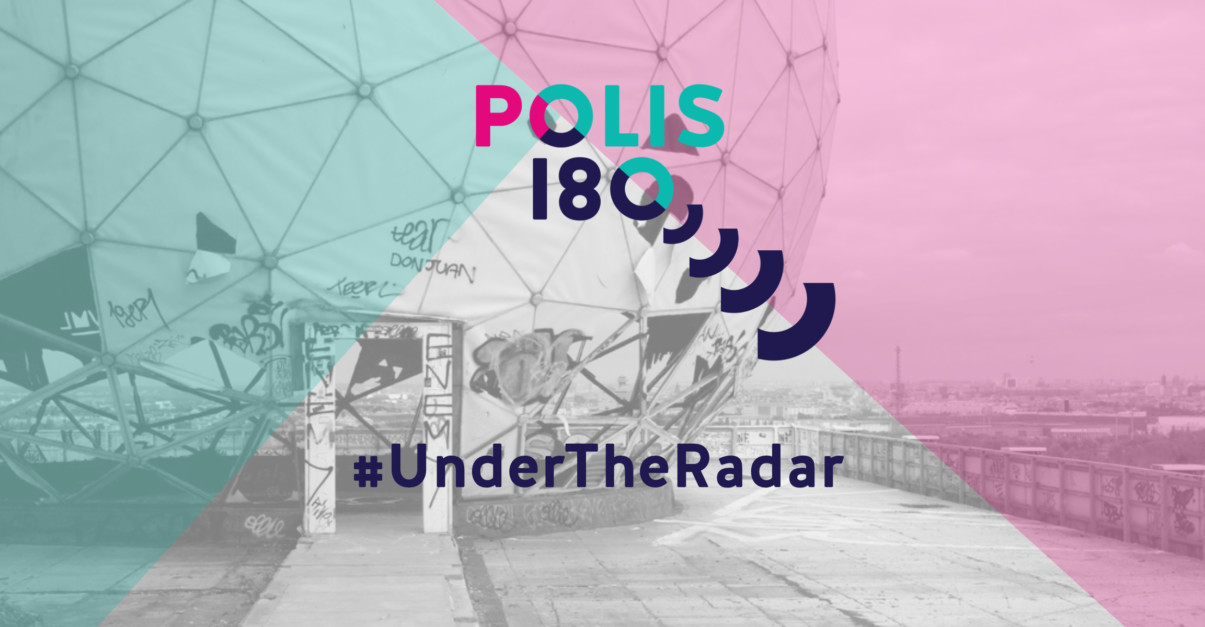In another episode of #UTR, the Polis Blog presents three news stories that undeservedly slipped through the cracks of last month’s media attention.
A column by Anne-Kathrin Glück
“I believe in recognizing every human being as a human being, neither white, black, brown nor red. When you are dealing with humanity as one family, there’s no question of integration or intermarriage. It’s just one human being marrying another human being, or one human being living around and with another human being. I may say, though, that I don’t think the burden to defend any such position should ever be put upon the black man. Because it is the white man collectively who has shown that he is hostile towards integration and towards intermarriage and towards these other strides towards oneness. So, as a black man, and especially as a black American, I don’t think that I would have to defend any stand that I formerly took. Because it’s still a reaction of the society and it’s a reaction that was produced by the white society. And I think that it is the society that produced this that should be attacked, not the reaction that develops among the people who are the victims of that negative society.”
Malcolm X
January 16, 1965
Polis Programme European Union: Human Trafficking Increased Across Europe
The European Commission published an introductory report on the progress in the fight against human trafficking that will be followed by a more detailed paper at the end of 2016. The short analysis gathered data compiled by EU member states. European authorities have accordingly registered almost 15.900 victims of human trafficking between 2013 and 2014, although the actual number of victims is believed to be “substantially higher”. The main purpose of trafficking is sexual exploitation. Other emerging trends are the exploitation of persons with disabilities, forced criminality and forced begging and child trafficking. The number of unaccompanied children becoming victims of trafficking and exploitation has increased substantially in the last few months. Another report stressed that around 70 percent of registered victims in Europe are EU nationals while Italy, Spain and the UK are key entry points for non-EU victims.
Why should this be on our radar? In fighting human trafficking EU member states have to cooperate effectively while the European Commission can play a crucial role in coordinating and sharing valuable information.
Polis Programme Migration: More Hate Crimes Towards Migrants
The result of the EU referendum was perhaps the most prominent proof for the rise of right-wing parties across Europe. At the same time, racially motivated crimes have increased dramatically and according to the European Network Against Crime (ENAR) numbers of racist attacks across Europe continue to grow. These figures are of course only the tip of the iceberg as the ENAR paper indicates that many migrants won’t even report experienced attacks to the police due to a lack of trust in authorities. In the UK alone the average number of hate crime incidents increased by 57 percent around the time the EU referendum was held. Most violent attacks are directed towards black and Asian ethnic minorities. At the same time European nationalists continue to highlight the threat coming from migrants and refugees.
Why should this be on our radar? By playing with ignorance and fear political leaders trigger the ugliest emotion in humanity: hate. Needless to say that discrimination only aggravates socials problems.
Polis Programme Peace & Security: Military Presence to Scale Up in Mediterranean Sea
While Frontex is on the verge of becoming the European Border and Coast Guard Agency later this year, the EU foreign ministers have decided to extend the EU naval operation in Libya until July 2017. The EUNAVOR MED Operation Sophia is set to fulfil two more tasks: training of Libyan coastguards and navy, and countering illegal trafficking of arms. In order to deal with the origins of the European migrant crisis, the EU wants to also intensify relations with Sudan and Eritrea. However, the situation in Northern Africa continues to worsen as more and more people try to escape their home countries while military forces chase and shoot escapees. Just recently, the EU Commission proposed a plan to improve living conditions in Eritrea by spending several billion Euro on the Eritrean energy infrastructure. Although bilateral ties with brutal regimes are highly controversial, EU member states are determined to combine money and military power to prevent more people from migrating to Europe.
Why should this be on our radar? Shifting military presence in Northern Africa and the Middle East cannot break the cycle of instability, violence and political ignorance.
In a (new) column edited by Polis Blog, newsworthy issues in foreign and European policy that slipped through the cracks of public attention are informally listed in a Top 3 linked to the Polis180 Programs Europe, Peace and Security and Migration.
Image source: „teufelsberg ii“, von Büsenfeld, http://bit.ly/1RMYPlj, lizensiert unter Creative Commons license 2.0.: https://creativecommons.org/licenses/by/2.0/.
